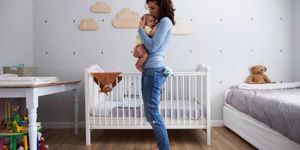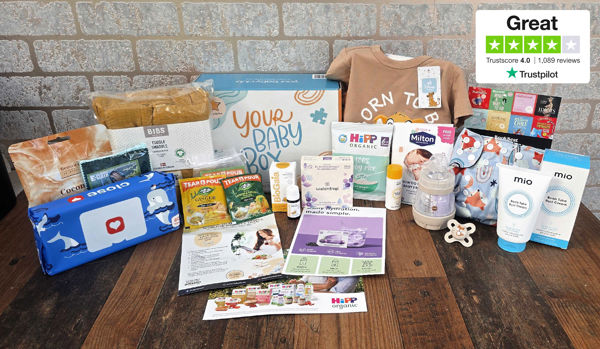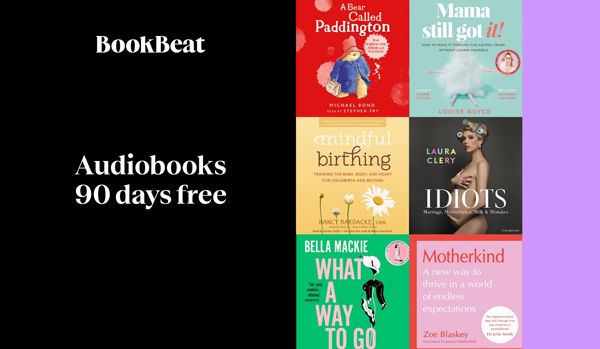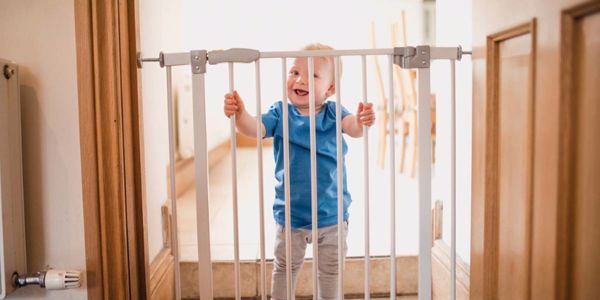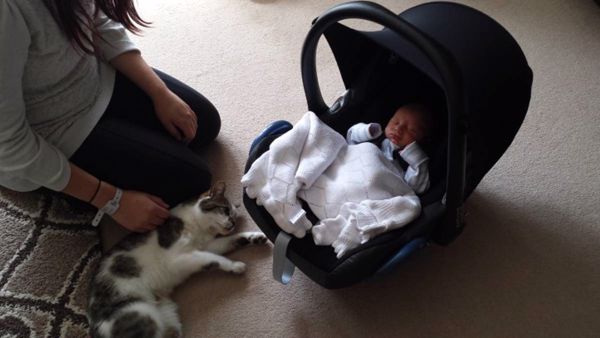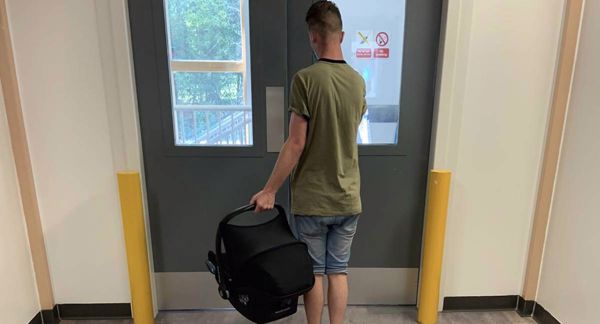Once you’re home, your nursery is all set up, you’ve got a side sleeper or cot next to your bed for the first 6 months and you’re just happy to be home with a cup of tea in hand.
Baby is settling into its new environment, taking in all the sights, sounds and smells - sensory overload! If your partner has been home in between the birth and you being discharged, they can set everything up for you ready, making sure the food shop is done or dinners are pre-prepared and you’re fully stocked with nappies, wipes, breast pads and most importantly, chocolate.
The First Night
It’s okay to be a little overwhelmed the first night once you’re home and you’ve no longer got a bustle of midwives around you to help with everything. It’s common for new mothers to not get any sleep the first night either, because hey, there’s a new human in the house and they’re completely reliant on you and your partner for every little thing. You may also experience night sweats as your hormones are settling down post-baby, so getting some sleep, even when your baby is fast asleep, is near impossible. Once your head does finally hit the pillow, it’ll likely be time for another feed!
Breastfeeding can hurt at first, as your baby learns to suckle, and you learn to get into the flow of it. Getting the latch right may take a few days. The discomfort is even worse at night, but just try to stay calm as your body adapts to its new function as a feeding vessel for your baby. If you feel more pain than you think normal, or are really struggling to get it right, do call your midwife so they can get some support to you ASAP.
Your First Post-Pregnancy Poo
Something you’ve probably been dreading, particularly if you tore during labour. After labour, before being sent home, your midwife will run through some poo positions with you to ensure you don’t strain. Ask your midwife or doctor if they would recommend a laxative to help soften things up, so you’re able to go 'number 2' without pain or strain. Raising your feet (on a stool or hefty book) and leaning forward may help too and don’t forget to breathe! It may take a few days to go successfully, but make sure you keep your midwife up to date when you see her, on concerns around your first bowel movement - they’re used to it, don’t worry!
Support Once You’re Home
Once you are settled, the midwife should come and visit you on the first day after you've been discharged from the hospital to check on you and your baby. There’s no set number of visits you will have from your midwife, they’ll visit you for as long as you need their support. This is usually 2-3 visits, just to get you settled and happy with everything and ensure you are recovering, and the baby is feeding well.
Your health visitor will also visit usually around 10 days after you’ve been discharged from hospital. They are trained midwives/nurses and will help you and baby stay happy and healthy. They usually either visit you, or you can see them at your local children’s centre or GP surgery.
Don’t be afraid to ask any questions that pop to your mind, even if you think they’re silly questions. They’re there to help you and make sure you’re comfortable and confident in your baby’s needs, feeding schedule, and how to identify anything they may need.
Feeding, Changing, Bathing and Sleep
Your full milk will come in after about three days and your baby should be having at least 8-12 feeds in a daily routine. Every baby is different however, and some will need feeding more or less than others. Being born is exhausting, so the few days after birth, your baby may want to sleep lots.
Feeds can take anywhere from 10 minutes to an hour, so have the remote, tablet, or a book handy! It’s quite intense to begin with, you’ll feel like you don’t even have time to pee or shower, as baby wants feeding every 5 minutes, but it will settle into a regular feeding pattern. They will also sleep for around 18 hours every 24 hours, but this could be coupled with plenty of wakeups. They won’t fully know the difference between night and day yet, so expect some broken sleep at night-time.
When washing your baby, and they have their umbilical cord stump still clamped, try to keep the area around it as clean as possible. Cotton wool pads and water is the best option for this. Do not try and remove the clamp or cord as it will naturally fall off when it has completely dried. However, do have a look daily for any signs of soreness or infection. Your midwife and health visitor will check this as well. Until it has fallen off, you can still give your baby a bath, just ensure it is fully dry afterwards. As an alternative, you could give them a ‘top and tail wash’ each day, especially between their little toes and between skin creases.
To ensure your baby sleeps safely in their cot, Moses basket or side sleeper, it’s important to keep your room between 16-20°C, with a well-fitting, lightweight sleep bag or swaddle. No toys, blankets, or pillows around them, and they should sleep on their backs. It’s safest for babies to remain in your room for the first 6 months, so you’re able to monitor them and make night feeds much easier.
It’s likely you’ll already have experienced baby’s first poo ('meconium', which is black and tar-like), whilst at the hospital. Yep, black poo is totally normal. If your baby is breastfed, their poos will be softer and more frequent compared to their formula-fed counterparts which will have firmer, less frequent, more pungent poos. After the first couple of poos, your baby’s digestive system kick-starts, meaning their poo will become more browny green after a few days.
They will usually wee 2-3 times per day too until day 3, when wees will become more frequent until they’re a week old, when they’ll be urinating 6+ times a day alongside their now yellow poo.
Get those nappies ready! You’ll likely need a whole 22-pack for the first week alone.
If you’re new to reusable nappies, it is usually recommended waiting until they’re at least 6-weeks old to start and gradually introduce them into your nappy cycle until you get into a routine of using and washing them. There are some great biodegradable eco-friendly disposable nappies on the market to use in the meantime too.

